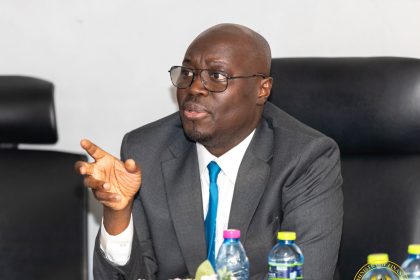Ambassador Extraordinaire of the Ghana Prisons Service (GPS), Mr Ibrahim Oppong Kwarteng, has called for the urgent deployment of scanners and essential modern surveillance gadgets to stop the inflow of contraband into correctional facilities.
While appealing to the government to provide scanners to GPS to strengthen checks and curb the influx of contraband, he noted that the smuggling of illicit items into prison compounds undermined rehabilitation efforts and compromised national security.
Mr Kwarteng, who received the honorary title in 2016 for his sustained advocacy through his Crime Check Foundation (CCF) for prison reform and the continuous release of petty offenders, was speaking in an interview with the Ghana News Agency on the sidelines of the commissioning of a poultry farm at Nsawam Female Prison.
The initiative aims to enhance inmate feeding, vocational training, and rehabilitation under the GPS Director-General’s Kitchen Support Project.
The poultry farm, spearheaded by CCF with funding by Rabotec Ghana Limited, is a strategic step toward modernising correctional facilities and equipping inmates with sustainable livelihood skills.
Mr Kwarteng, who is also the Founder and CEO of CCF, noted that the presence of illicit substances and prohibited items within prison yards undermined rehabilitation efforts and threatened institutional credibility.
“When a prisoner is jailed for smoking a marijuana, for example, and then ends up accessing even more of it inside the prison, it defeats the whole purpose of reformation,” he said.
He attributed the problem largely to outdated inspection protocols and manual checking systems, which he described as vulnerable to compromise.
“Manual checking is porous. It can be manipulated. That’s why scanners and advanced surveillance systems must be prioritised,” he stated.
Mr Kwarteng noted that closed-circuit television (CCTV) alone was insufficient to detect concealed items.
“CCTV can’t capture everything. You need scanners to detect what’s hidden in bread or other items,” he said.
Mr Kwarteng cautioned that without robust security protocols, prison facilities risk becoming “open houses” that erode their core mandate.
“A prison without a proper system to check illegality is not a secure facility. It becomes a threat to society,” he said.
He called for a paradigm shift in mindset and substantial investment in modern technologies such as biometric scanners, body imaging systems, and digital tracking to enhance public confidence and align Ghana’s correctional system with international standards.
“Rehabilitation is not just about confinement. It’s about creating a secure, disciplined environment where transformation is possible,” he said.
Speaking on the poultry project, Mr Kwarteng said the initiative underscored the importance of proactive rehabilitation programmes.
“We must begin to think differently. Ventures like this poultry project are essential to reducing reoffending,” he said, adding that 20 additional projects would be replicated within two years to support the GPS Director-General’s agenda.
He urged the media to contribute to the GPS advocacy reform efforts rather than focus solely on shortcomings.
“Constructive coverage could attract investment and promote ideas such as prison tourism,” he said.
He added that the poultry farm aligned with the government’s flagship programme, ‘nkoko nkitinkiti’, transformation agenda, which seeks to rebrand state institutions through innovative poultry farming
“It is designed to promote food self-sufficiency, generate revenue for the Prisons Service, and support inmate reintegration through agriculture-based rehabilitation.
The farms are expected to supplement state feeding budgets, provide consistent protein sources for inmates, and offer vocational training that could reduce post-release stigma”.
Scaling up to 200,000 birds would require sustained funding, reliable market access, and continuous inmate training.
Nonetheless, the initiative signals a shift toward prisons as centres of productivity and rehabilitation.
In a speech read on her behalf, Director-General of GPS, Mrs Patience Baffoe-Bonnie, said the poultry farm reflected institutional renewal and strategic foresight.
“This initiative stems from our desire to contribute to national development while fulfilling our mandate to reform and rehabilitate inmates through agricultural engagement,” she said.
She appealed for continued public and private sector support, stating that, “We still need to expand. We therefore call on benevolent individuals to come to our aid to make this a reality.”
Ten prison facilities are targeted under the programme, including Nsawam Complex, Awutu Camp, Ankaful Prisons, Duayaw-Nkwanta Camp, Osamkrom Camp, Forifori Camp, James Camp, Kenyasi Camp, and Ekuase Camp, with a projected output of at least 200,000 birds.
At Nsawam Female Prison, the first 400 birds have already been commissioned.
On her part, Deputy Director of Prisons, Mrs Victoria Adzawuda, Officer-in-Charge of Nsawam Female Prison, welcomed the poultry initiative as a boost to inmate welfare.
“This project will provide a reliable source of poultry products to support feeding, rehabilitation, and vocational training, while also generating revenue for the Service,” she said.
She commended Rabotec Ghana Limited and CCF for their “enormous support in bringing this vision to life.”
GNA






